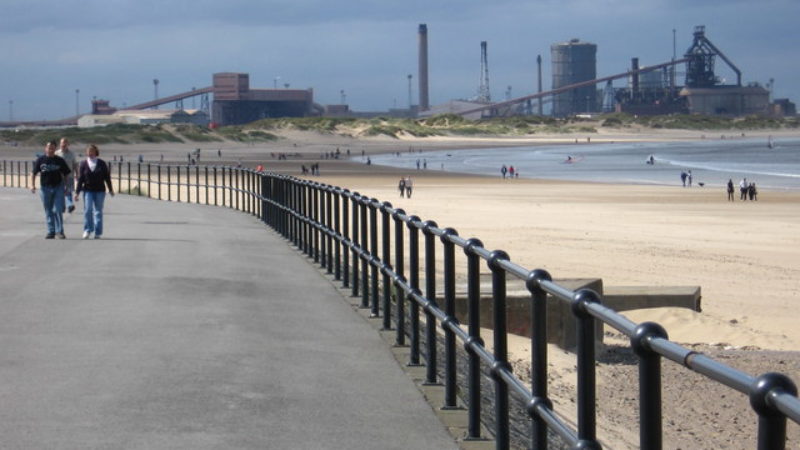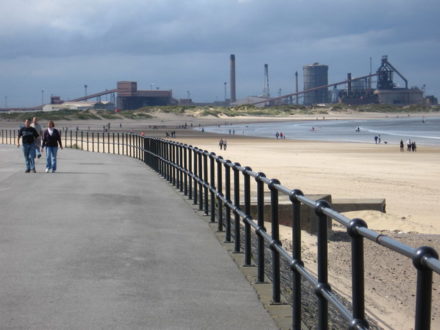

Technological change is already beginning to transform our world, changing the way we live and work. The challenge for progressives is to find ways of managing the disruption so that all parts of our society can benefit. As my colleague Tom Watson MP has argued, the question is how we make this transformative process our friend and not our foe.
The “job for life” is now rare, replaced with less secure work and more self-employment. The next generation of automation could soon see more jobs replaced by robots. For policymakers this means grasping for new means to manage the resulting economic and social change and smooth out the process. For those of us on the centre left of politics, this task is even greater as our commitment to working for an equal and just world faces new frontiers.
My constituency, Redcar, was at the sharp end of the Conservative government’s view that markets work best without state intervention, when they opted for a hard closure of the local steel industry instead of helping the business weather the storm. This outlook will serve our economy poorly in the coming years. Instead we need to see an “empowering state” which supports people through technological upheaval and ensures the many, not just the few, benefit from the rewards of the second machine age.
Globalisation has made its mark on northern industrial towns like Redcar, as the drivers of Britain’s economy have become the service sector and financial services. For people in Teesside, this has meant many of the new jobs created are less secure and lower paid, in sectors like retail, hospitality, and customer service. Industry and manufacturing enterprises continue to grow but on a much smaller scale than in the past.
As technological innovation brings about a new wave of change, our labour market will look very different again. In the budget this year the chancellor set the wheels in motion for driverless cars and lorries. It’s now conceivable that the coming years could see transport and haulage gradually replaced by automated vehicles, which, whilst potentially improving road safety, would also mean a significant reduction in jobs. In addition, new start-ups like Uber and Airbnb are changing the way their own established markets work.
In industrial towns like my own of Redcar, the pressures of the global economy have already brought about massive change and it is understandable that people feel insecure and bereft. We need a pro-active, empowering state to ensure places like Teesside can harness the new jobs and services that the digital revolution will bring.
The challenge for progressives is ensuring the state protects and empowers those who are vulnerable to this change through: improved conditions for self-employed workers; education targeted at addressing the skills gap; and more state investment in new sectors.
As a Labour and Co-operative MP, one response I have been encouraged by is the formation of co-operatives among self-employed workers. For example, the Federation of Entertainment Unions, a network of trade unions for those working in the UK media, has successfully negotiated for their freelance members by securing “worker status”. In Swindon, 50 music teachers formed a co-op in order to market their services collectively. Meanwhile, in France and Belgium, co-operatives are providing services like affordable workspace and back office support for their members. In an uncertain world, new collaborative institutions will allow people to enjoy the flexibility of working alone but with greater security.
Despite successive governments focusing on investment in education, more needs to be done to address the skills gap. In Teesside, a focus on re-skilling is at the heart of our local response to the challenge of regenerating our local economy. The taskforce set up to respond to the closure of the steelworks has collaborated with local colleges to retrain former steelworkers. Adult retraining opportunities like this need to be available more broadly so that people can make the transition into new work. We also need to equip our young people who are still in education for the jobs our economy needs: electricians, engineers, technicians, coders and entrepreneurs.
We need the state to promote innovation and entrepreneurship, invest in infrastructure like high speed broadband, and support the growth of businesses in employment creating sectors. On the continent, Germany has shown how a proactive and innovative state can support the advancement of industry within the market structure. This contrasts hugely with the UK, and if we do not catch up, the UK will cede further ground to our competitors and miss out on the dividends.
The challenges are great but the opportunities are greater. A proactive state can ensure the rewards reach the many, and not just the few.
This blog is based on a chapter Anna Turley MP wrote for the book Changing Work: Progressive ideas for the modern world of work, published this week. Changing Work is the first publication from the Changing Work Centre, an initiative from the Fabian Society and Community which is chaired by Yvette Cooper MP.




More from LabourList
‘Labour is being badly misled on housing’
Reeves bets on patience over populism
‘Energy efficiency changes must work for older private renters’